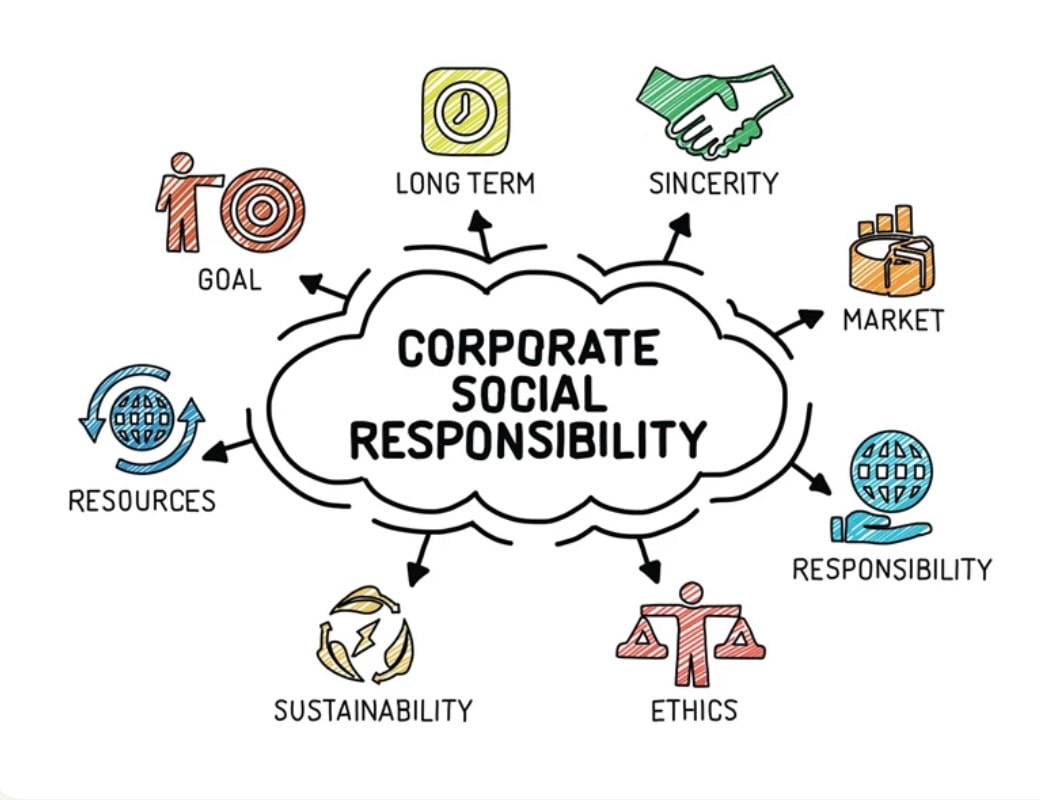|
Corporate Social Responsibility has become an increasingly contentious debate throughout the business world. Should businesses focus solely on scaling to drive profits? Or do businesses have a moral obligation to better their communities?
If you are unfamiliar with the term, Corporate Social Responsibility is defined as a self-regulating business model that helps a company to be socially accountable to itself, its stakeholders, and the public. CSR ensures that a company is operating in a way that enhances society and the environment rather than contributing negatively to it. Businesses and corporations can engage in CSR by giving their employees opportunities to volunteer, implementing environmentally safe processes, or by sponsoring a nonprofit organization. While this may seem surprising, there is a camp of people who do not think Corporate Social Responsibility is necessary for companies; most notably in this camp is Milton Friedman. Milton Friedman is a famous economist and staunch advocate of free market capitalism. Friedman’s view on Corporate Social Responsibility is most evident in his famous New York Times article titled “The Social Responsibility of Business is to Increase its Profits.” Milton was vehemently opposed to the idea of Corporate Social Responsibility as he believed that “there is one and only one social responsibility of business to use its resources and engage in activities designed to increase its profits so long as it stays in the rules of the game, which is to say, engages in open and free competition, without deception or fraud.” Friedman argues that the sole focus of business owners and executives should be to provide their shareholders with an increasing return on investment - anything besides this is a waste of time and a detriment to the business. Ultimately, Friedman believed that companies who prioritize CPS will be negatively impacted as shareholders will tend to avoid investing in companies that act socially responsible. Friedman’s views have received fierce opposition from many throughout the business world. Contrary to Friedman’s economic driven model of CSR, the socioeconomic model argues that corporations and businesses are morally obligated to contribute positively to society. The backbone of the socioeconomic school of thought comes from the Iron Law of Responsibility: “In the long run, those who do not use power in a manner that society considers responsible will tend to lose it.” Milton Friedman wildly undervalued the benefits of CSR as the socioeconomic camp is backed up by significant data that shows that corporations who participate and prioritize Corporate Social Responsibility excel over those who don't. For example, a survey of over 30,000 people from NielsenIQ states that 66% of consumers are willing to pay more for products from socially responsible companies. This approach to Corporate Social Responsibility has a number of positive implications for companies. First off, a commitment to CSR often leads to increased employee satisfaction. Prioritizing Corporate Social Responsibility shows your employees that you care about the greater community. Through volunteering or sponsoring a non-profit organization, a sense of camaraderie can be built among your employees in the sense that they are working toward something greater than the company and its profits. Secondarily, a byproduct of CSR is a favorable public image. Through social media and public relations, a company's public image can be either a positive or negative asset to a business. By committing to Corporate Social Responsibility, your company will develop a favorable public image that will only help build the brand. Third, CSR leads to increased customer loyalty. Customers are more likely to be loyal to your brand if your corporate values align with their personal ones. There are a number of companies that have placed an emphasis on CSR and it has added tremendous value to their company. For example, the LEGO Group invested $400 million in September of 2020 to support their social responsibility and sustainability efforts. The company recently signed an agreement to set up its first-ever carbon neutral plant in Vietnam. Additionally, the LEGO Group announced that the LEGO Foundation has committed to a three-year partnership with UNICEF that will invest $2.5 million in providing resources to community based family support programs. When a corporation makes an honest effort to better themselves and the surrounding community, it adds tremendous value to the company. Triangles Cares is a resource for businesses and corporations in the Triangle area to enhance their Corporate Social Responsibility. Triangle Cares offers opportunities for businesses to work with nonprofits, whether it be by physically mobilizing employees to volunteer throughout the community, or by donating to a specific nonprofit organization. If you think your company needs to step up your commitment to the community, check out our website for more information.
0 Comments
Leave a Reply. |
AuthorsJordan Hannan and Jordan Lappin Archives
January 2023
Categories |
Proudly powered by Weebly


 RSS Feed
RSS Feed